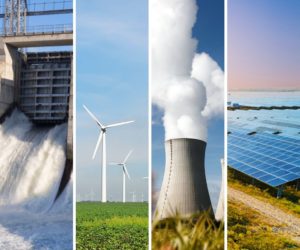
Where Does Your Food Waste Go?
Where Does Your Food Waste Go? Posted February 15, 2024 An Overview of What Davidson Environmental Does with Your Waste! You may be one of our customers, or you may just be interested in our service – either way, this blog post will take you through exactly what we do with your food waste when […]
Continue Reading
Continue Reading

The Battle of Straws: Paper vs. Plastic vs. Bioplastic and the Environmental Impact
In recent years, the environmental impact of plastic pollution has become a global concern, prompting individuals and businesses alike to seek sustainable alternatives. One such battleground in the war against plastic is the realm of drinking straws. Traditional plastic straws, once a staple in every beverage, are facing stiff competition from their eco-friendly counterparts, the […]
Continue Reading
Continue Reading

Sustainable Travel: A Guide to Traveling Responsibly
Sustainable travel, also known as responsible or eco-friendly travel, refers to the practice of traveling in a way that minimizes negative impacts on the environment, culture, and economy of the destination, while maximizing the benefits for local communities and preserving natural resources. Sustainable travel aims to protect the planet, promote cultural understanding, and support local […]
Continue Reading
Continue Reading

Urban Sustainability
Urban sustainability is a term that sounds almost too good to be true – how can a city further urbanize and be considered sustainable? Urban sustainability refers to the concept of creating cities and urban areas that prioritize environmental sustainability and incorporate nature-based solutions to enhance the quality of life for residents and mitigate the […]
Continue Reading
Continue Reading

Benefits of Recycling: 10 Reasons to Recycle
Recycling is a key component of a circular economy where waste materials are repurposed and reintegrated into the production cycle. By recycling, we can significantly reduce the burden on natural resources, minimize waste generation, and mitigate environmental damage. Recycling food waste (the one near and dear to us here at Davidson Environmental), paper, plastic, glass […]
Continue Reading
Continue Reading

LEED Certification and Sustainable Buildings
We spend most of our time in some kind of building (home, office, school etc), and yet very little thought goes into the environmental footprint that buildings and infrastructure impacts. Sustainability and environmental initiatives have become more mainstream in all industries and this even holds true for the building and construction industry. New construction of […]
Continue Reading
Continue Reading

Food Waste: Is it waste?
Food waste, and creating food waste, is often marketed in a negative light (from both government and media outlets), with many campaigns providing ways to reduce or eliminate food waste. But what if all this negative hype around food waste wasn’t entirely true? The buzz around food waste from government and media outlets is abundantly […]
Continue Reading
Continue Reading

What is the Best Substrate for Biogas Production?
Anaerobic digestion, for use of biogas, is the resourceful and sustainable conversion of various organic wastes (biomass) into renewable energy. The goal of anaerobic digestion for biogas is to produce as much biogas as possible with the highest possible biomethane content from biomass. With this goal in mind, is there a certain substrate that produces […]
Continue Reading
Continue Reading

Composting vs. Anaerobic Digestion
Most of us have heard of ‘composting’ as the mainstream way to recycle organic waste, and while the composting process is effective, there are other methods that may be more efficient. Not mentioned as often, but is certainly up and coming, is biogas production for renewable energy. These two methods of organic waste disposal are […]
Continue Reading
Continue Reading

Clean Energy in Ontario: Current Reality, Goals & The Future of Electricity
As the Ontario government appoints its last and remaining members to the Electrification and Energy Transition Panel, it’s a great time to discuss Ontario’s achievements, goals, and future to ensure residents and businesses have access to a reliable, affordable clean energy supply. The Electrification and Energy Transition Panel has been tasked with advising the provincial […]
Continue Reading
Continue Reading
